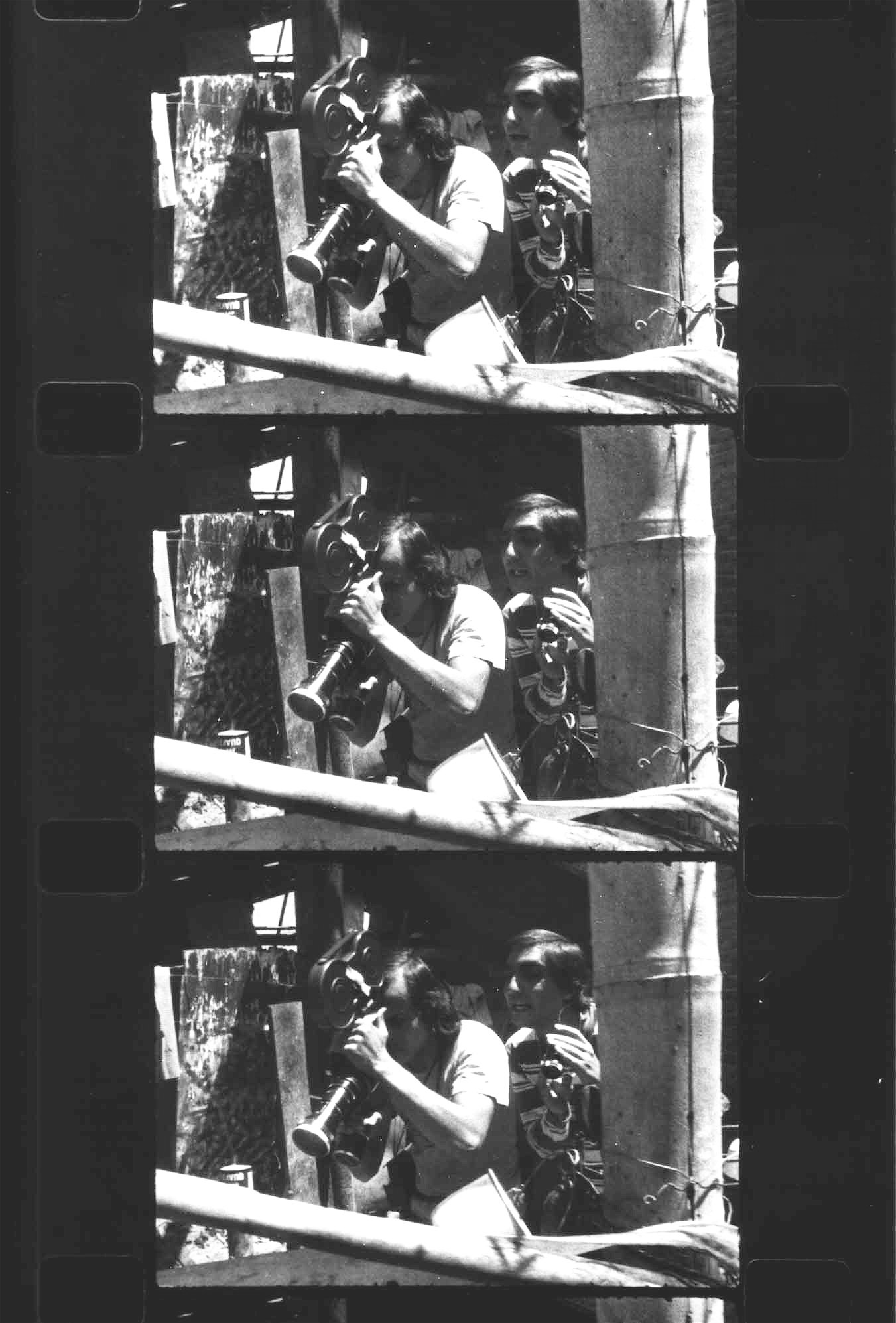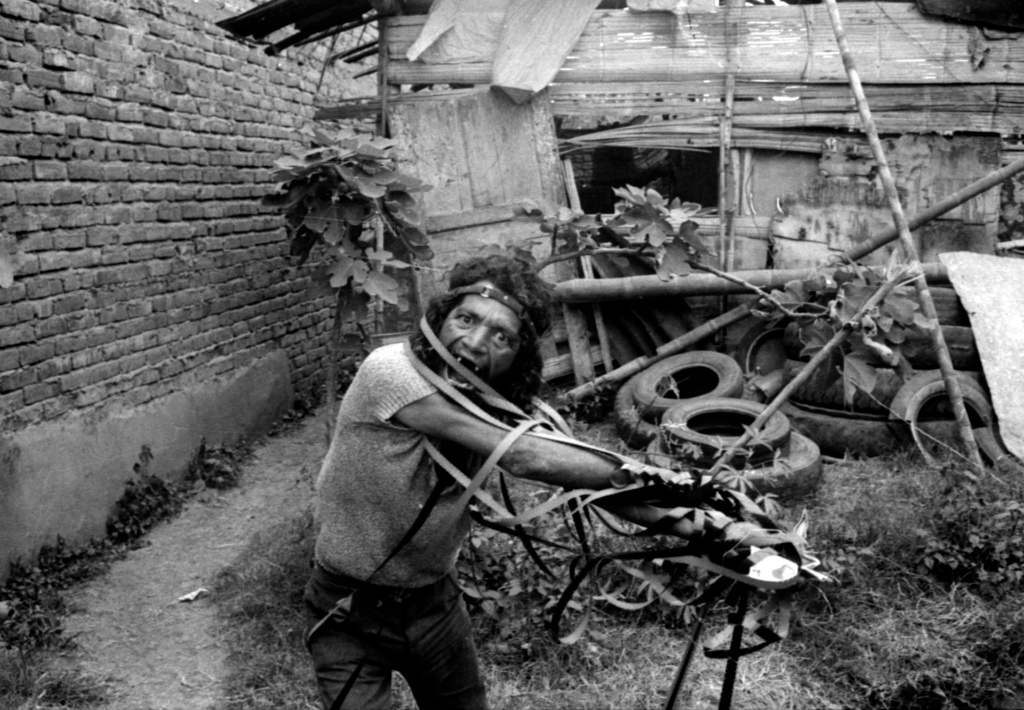Saturday, January 20, 2018 - 3:00 pm
Billy Wilder Theater UCLA
10899 Wilshire Blvd, Los Angeles, CA 90024
Meta: Cinema Critiques Cinema
In person: Ximena Cuevas, filmmaker / Luis Ospina, filmmaker
In a reflexive mode, the filmmakers in this program contemplate their chosen medium, its history, defining characteristics and iconic movements. If there exists any Latin American specificity of meta-cinema, The Vampires of Poverty (Agarrando pueblo, 1977), by Luis Ospina and Carlos Mayolo, is one of the starting points of that tradition. It reflects on the representation of poverty in Latin America, produced by privileged local filmmakers and financed by European funders in search of the elusive "real" in Third World cinema. Ospina and Mayolo accompanied the 1978 Parisian premiere of The Vampires of Poverty with a manifesto entitled "What is Poverty Porn?”, which represents a new level of self-awareness and critique surrounding the foreign perception of Latin American film. Ximena Cuevas Cinepolis, la capital del cine (Cinepolis, the Film Capital, 2003) presents an insider‘s unsettling perspective on the everyday world of image-making and image consumption. The cinematic apparatus is foregrounded in the Cuban critique of flawed and careless production in Enrique Colina Barnet’s Chapucerias (1987), while the Brazilian conceptual short Duelo (Duel, 1973), by Daniel Santiago, is a conceptual game that represents the tensions between Super 8 and 16mm filmmakers.
Ximena Cuevas is a Mexican video performance artist. Her works often explore the social and gender issues facing lesbians in Mexico. Cuevas's videos and films have screened at Sundance, New York's Museum of Modern Art, the Guggenheim Museum, and the touring film series, Mexperimental Cinema. Cuevas' work is most known for its subtle irony of evaluating contemporary society and exposing the incongruity between social customs and beliefs versus the reality of living. She deconstructs myths of the "typical middle-class Mexican family", heteronormative relationships, concepts of beauty, through parody of the ridiculousness of their traditional portrayal in popular culture.
These screenings are part of Los Angeles Filmforum’s screening series Ism, Ism, Ism: Experimental Cinema in Latin America (Ismo, Ismo, Ismo: Cine experimental en América Latina). Ism, Ism, Ism is an unprecedented, five-month film series—the first in the U.S.—that surveys Latin America’s vibrant experimental production from the 1930s through today. Revisiting classic titles and introducing recent works by key figures and emerging artists, Ism, Ism, Ism takes viewers on a journey through a wealth of materials culled from unexpected corners of Latin American film archives. Key historical and contemporary works from Argentina, Brazil, Bolivia, Chile, Colombia, Cuba, Ecuador, México, Paraguay, Perú, Uruguay, Venezuela, Puerto Rico and the United States will be featured. Many of the works in the series are largely unknown in the United States and most screenings will include national and area premieres, with many including Q&A discussions with filmmakers and scholars following the screening. The film series will continue through January 2018 at multiple venues, organized by Filmforum. www.ismismism.org
Ism, Ism, Ism is accompanied by a bilingual publication, Ism, Ism, Ism / Ismo, Ismo, Ismo: Experimental Cinema in Latin America (Jesse Lerner and Luciano Piazza, editors, University of California Press, 2017) placing Latino and Latin American experimental cinema within a broader dialogue that explores different periods, cultural contexts, image-making models, and considerations of these filmmakers within international cinema. Available worldwide, https://www.ucpress.edu/book.php?isbn=9780520296084.
Ism, Ism, Ism is part of Pacific Standard Time: LA/LA, a far-reaching and ambitious exploration of Latin American and Latino art in dialogue with Los Angeles. Explore more at www.ismismism.org, lafilmforum.org, and www.pacificstandardtime.org.
Lead support for Ism, Ism, Ism is provided through grants from the Getty Foundation.
Significant additional support comes from the Andy Warhol Foundation for Visual Arts, the National Endowment for the Arts, and the Mike Kelley Foundation for the Arts.
Pacific Standard Time is an initiative of the Getty. The presenting sponsor is Bank of America.

